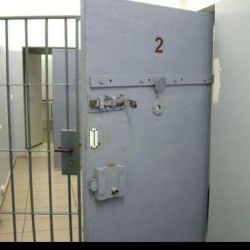In July 2013, representatives of the Committee inspected eight Police stations and four Police establishments for children in Poland. The monitoring encompassed, among others, the premises for detained persons at provincial Police HQs in Warsaw, Szczecin, Lublin and Bydgoszcz.
“During inspections of Police departments, the CPT delegation received numerous complaints about the ill-treatment of detainees by Police officers”, says Dr Adam Bodnar, HFHR Deputy President. The report describes cases of persons taken into custody being beaten with batons, burned with cigarettes, or handcuffed to radiators. A considerable number of these cases were confirmed by medical examinations conducted by a CPT representative. “These observations have led to the conclusion that persons in custody are at considerable risk of ill-treatment”, comments Dr Bodnar.
The Committee members called upon the Polish authorities to introduce procedures preventing ill-treatment, including safeguards for persons reporting such cases. “It is also necessary to improve the effectiveness of criminal proceedings concerning cases of ill-treatment”, says Marcin Wolny, an HFHR lawyer.
Yet again, the report stresses a number of difficulties detained persons have in exercising their fundamental rights, including the right to contact a lawyer after being arrested, the right to inform their closest family about their detention, the right of access to legal aid and access to an independent physician.
As was the case in the previous reports by the Committee, the issue of prisoners’ rights is also raised. “The Committee renews its call for increasing the living space per prisoner to four square meters”, says Katarzyna Wiśniewska, an HFHR lawyer. “What is more, several problems continue to occur with observing the rights of dangerous prisoners. It primarily concerns access to fresh air, activities outside the prison cell and cessation of the humiliating frisk searches,” Wiśniewska explains.
Furthermore, the Committee members also took note of cases of verbal abuse, particularly of foreign inmates, by the Prison Service staff.
The report also contains recommendations concerning the care for inmates in psychiatric wards where they should have greater access to therapy or extra activities.
The Committee was particularly alarmed by the practice of immobilising patients for longer than six hours. During the inspection, the delegation learned about cases of the immobilisation for as long as 25 or even 32 hours.





